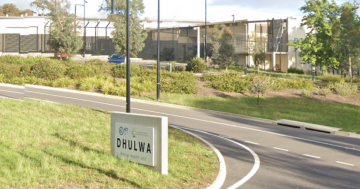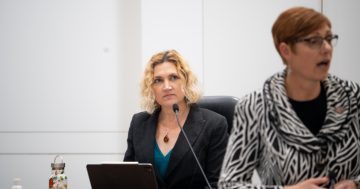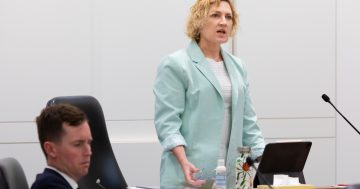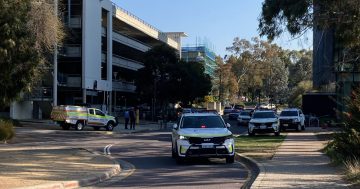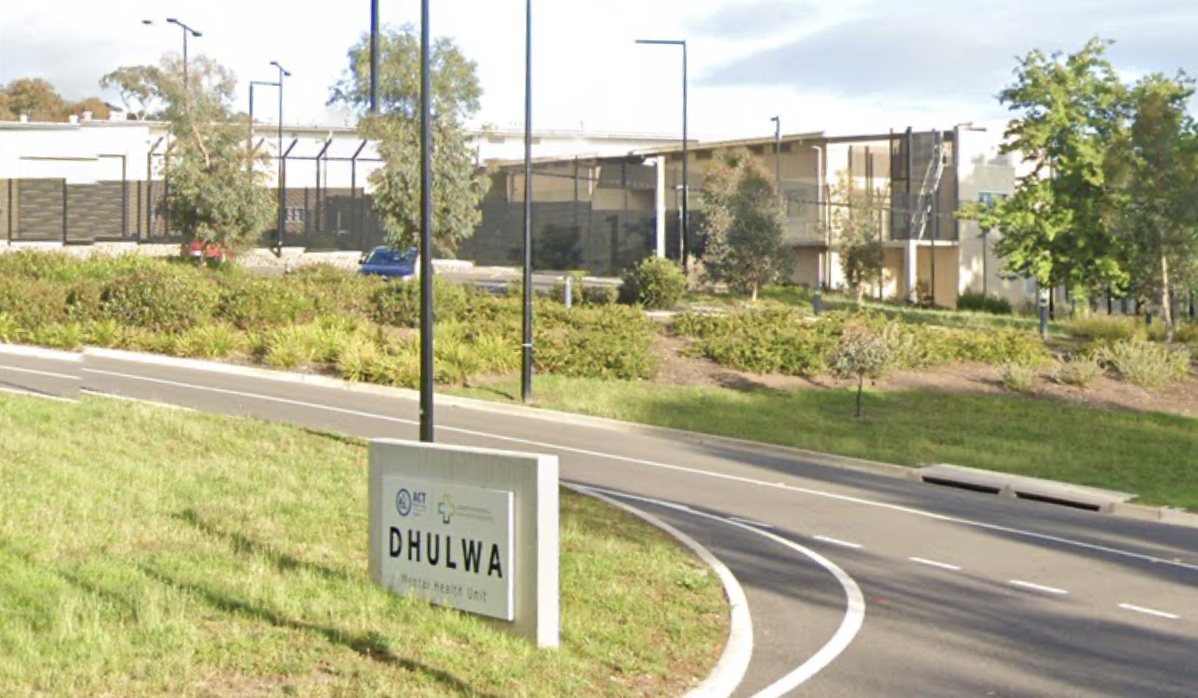
Nurses working at the secure mental health facility Dhulwa say violent incidents have escalated over the past six months. Photo: Google Maps.
No consistent leadership, a ‘fractured’ and toxic culture, staff feel unsafe and nobody is quite sure about what the model of care they are providing should be – meaning it is below expectations.
A much-anticipated review of the ACT’s secure mental health unit was handed down yesterday (Thursday, 1 December) and it delivered a scathing assessment of practices and care at Dhulwa.
The findings were perhaps unsurprising, given the inquiry was kicked off following staff having raised concerns.
In April this year, the nurses’ union sounded the alarm bells over almost 100 reported assaults on staff and WorkSafe ACT issuing improvement and prohibition notices for the facility.
However, this review said those reports of violence had been inflated and while a “perception” had been created it was a dangerous workplace, only a few incidents resulted in a person needing time off work.
“Of the incidents that resulted in injury few were the direct result of aggression by consumers but appeared to be the result of poorly managed or implemented clinical or work practices,” the review stated.
It also noted this reporting had damaged its reputation and had far-reaching consequences for patients and staff.
Nevertheless, practices and governance at the unit were poor and leading to major problems.
A formal inquiry chaired by former public servant Barbara Deegan began in June, after the Government at first resisted calls for one.
Dhulwa is the ACT’s purpose-built secure mental health facility and is only six years old.
It generally takes people who have already come into contact with the justice system or are at risk of doing so.
The review suggested Canberra Health Services and the workforce had failed to take advantage of the opportunities it offered.
Most of the problems related to an undefined model of care (as in, who should be coming in for treatment), a lack of appropriate policies and procedures in place and a dysfunctional work environment.
Staff reported distrust in management, sometimes perceiving management directions as bullying.
Their roles were also unclear.
Overall, the Deegan review highlighted a stark lack of governance arrangements. It described the existing ones as “complex and unsettled” and suggested these had partly led to the ongoing issues at the unit.
It made a total of 25 reviews which ranged from confirming what the model of care is to restructuring staffing arrangements and implementing a new ward model.
Restrictive practices like seclusion and restraint should be restricted and security arrangements should be integrated into clinical practice.
Several recommendations went to the governance arrangements of the facility.
It recommended establishing more defined clinical leadership positions and better structure for delegating and reporting.
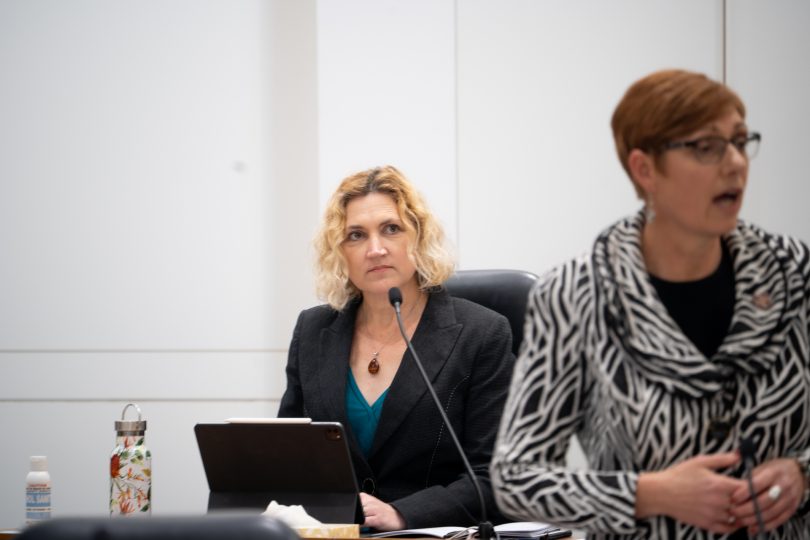
Minister for Mental Health Emma Davidson said she couldn’t yet confirm if the Government would accept all of the recommendations made by the independent review. Photo: Region.
Mental Health Minister Emma Davidson addressed the media yesterday.
She said some of the recommendations could be started on immediately but couldn’t yet provide a firm guarantee that all would be accepted by the Government.
One tangible first step would be working to appoint someone to fulfill an independent oversight position, she said.
Ms Davidson skirted around questions about future leadership changes when asked repeatedly.
The ACT Government will formally respond to the inquiry next year.
Australian Nursing and Midwifery Federation ACT branch president Matthew Daniel didn’t, however, have a problem accepting all of the recommendations in the report.
And despite previous reviews into the facility having failed to trigger any real change, he said he remained hopeful.












